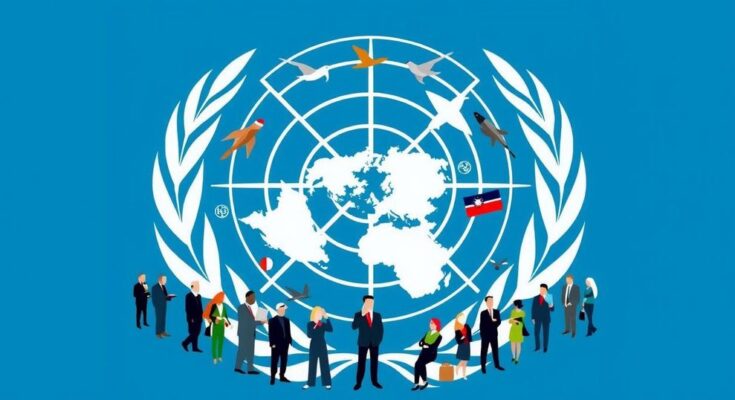The 29th UN Climate Conference, COP29, is underway in Baku, Azerbaijan, with nearly 200 nations participating. Discussion focuses on forming a new climate finance goal amidst the absence of leaders from major polluting countries. Alden Meyer highlights the need for increased funding to support developing nations, as climate impacts intensify and urgency mounts for global cooperation on emissions reduction.
The 29th UN Climate Conference (COP29) has commenced in Baku, Azerbaijan, attracting representatives from nearly 200 countries. This year, the dialogue is particularly significant, as nations grapple with the urgency of financing climate initiatives amidst escalating global temperatures. Alden Meyer from the climate think tank E3G shares insights on the tense atmosphere, fueled by major global leaders’ absences, particularly from the USA, Brazil, India, and China, and the pressing goal for a new climate finance target to replace the outdated $100 billion agreement. As nations consider their commitments to reducing carbon emissions, the conference seeks to mobilize greater resources and foster collaboration despite increasing geopolitical tensions.
The UN Climate Change Conference, officially known as the Conference of the Parties (COP), serves as an annual venue where countries discuss and develop strategies for addressing climate change. COP29 specifically appears critical as it follows the decision to mobilize a post-2025 financial framework aimed at supporting developing nations in their climate change mitigation and adaptation efforts. The importance of this framework is underscored by the recent election outcomes in the US and rising global climate impacts, leading to heightened concern about political commitments to climate finance. The conference serves as not only a platform for commitment but also for enhancing international trust and cooperation in climate initiatives.
In summary, the commencement of COP29 reflects significant challenges and heightened urgency for addressing climate change globally. With major global leaders absent and the necessity for increased climate finance looming over discussions, the outcome of COP29 could significantly influence future international climate commitments. As nations work towards establishing new financial targets and collaborative pressure mounts, it is essential to recognize the contributions of both developed and developing nations in combating climate impacts. The conferences aim not only to address immediate financial gaps but also to reinforce a collective global commitment to climate action.
Original Source: loe.org




